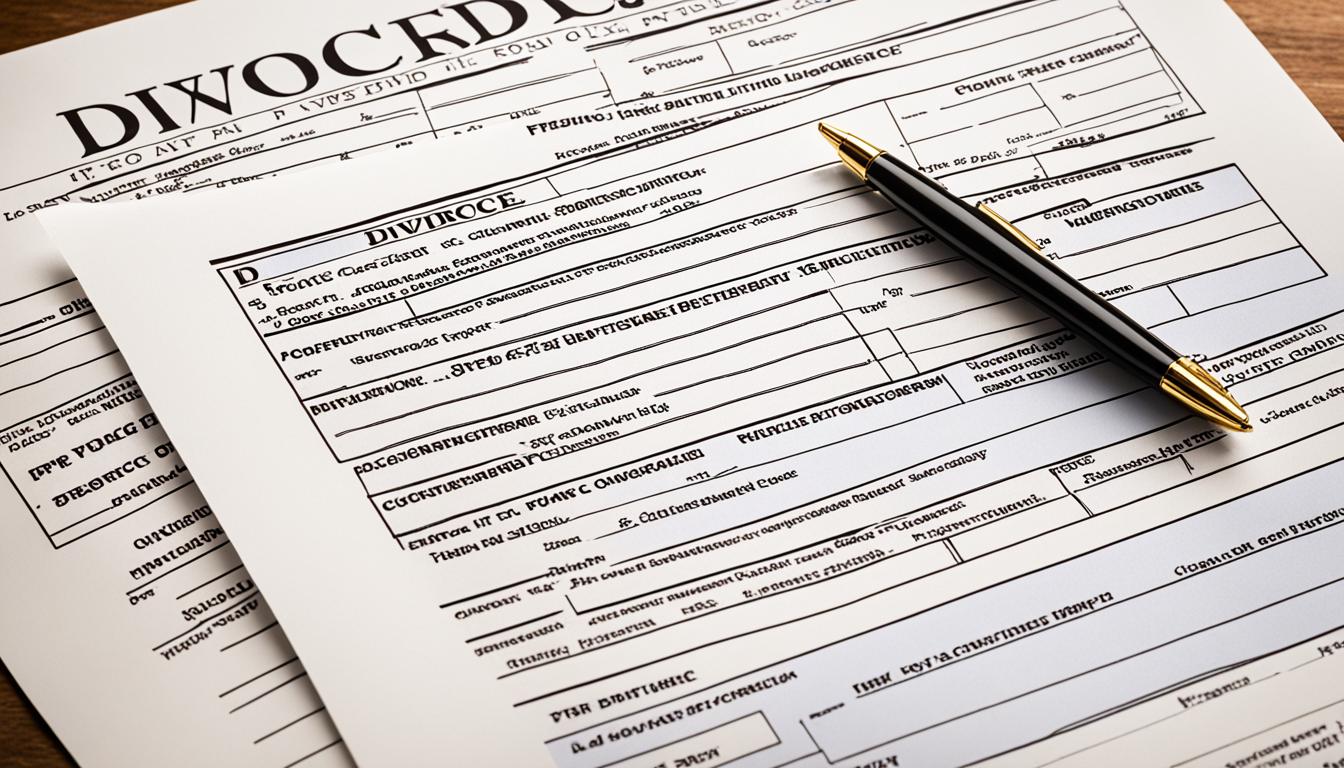Physical Address
304 North Cardinal St.
Dorchester Center, MA 02124
Physical Address
304 North Cardinal St.
Dorchester Center, MA 02124

Filing for divorce in Montgomery County, TX, can feel like navigating through a dense forest of legalities and emotions. It’s not just about completing forms; it’s a significant moment in your life. You’re at a critical juncture, where each decision will impact your future. In Montgomery County, the divorce process comes with its unique set of challenges and specific steps.
To ensure a smoother journey, understanding Montgomery County’s specific divorce laws is crucial. This includes familiarizing yourself with residency requirements and mastering the local court system’s intricacies. We’re here to guide you through this process, offering straightforward, actionable advice tailored to Montgomery County. Consider this your guide, designed to simplify a potentially complex journey.

Ready to start the divorce process in Montgomery County? Keep reading as we break down the essential steps, aiming to make your path forward clearer and more manageable. Let’s take this step together, moving towards new beginnings and brighter possibilities.
To get more info on filing for divorce in Texas, find a detailed overview in our article, How to File for Divorce in Texas.
Before filing for divorce in Montgomery County, Texas, you need to ensure that you are eligible to do so. The residency requirements for filing for divorce in Montgomery County are twofold:
If either you or your spouse meets both of these requirements, you can proceed with filing for divorce in Montgomery County. If not, you will need to wait or file for divorce in the county where you or your spouse currently reside.
In Texas, there are both no-fault and fault-based grounds for divorce. Understanding these grounds is essential, as they may impact various aspects of the divorce process, such as the division of assets and child custody arrangements. Let’s explore the differences between no-fault and fault-based grounds in the context of divorce laws in Texas and Montgomery County.
No-fault grounds for divorce in Texas refer to situations where the marriage has become insupportable due to conflict or when the spouses have lived apart for at least three years. These grounds do not require proving any wrongdoing by either spouse. No-fault divorces offer a more amicable approach to ending a marriage, focusing on the conflict or irretrievable breakdown rather than assigning blame.
Fault-based grounds for divorce in Texas include various reasons that can be attributed to one spouse’s actions or behavior. These grounds may include adultery, cruelty, abandonment, incarceration, and mental illness. Fault-based grounds provide the option for the injured spouse to present evidence of the other spouse’s misconduct, which can impact the court’s decisions on division of property, alimony, and child custody.
It’s important to consult with a knowledgeable attorney to understand the specific grounds for divorce in Montgomery County and how they may apply to your situation. They can guide you through the legal process, ensuring that your rights and interests are protected throughout the divorce proceedings.
Filing for divorce in Montgomery County, TX involves several steps. To ensure a smooth and successful divorce process, it’s important to follow these steps carefully.
By following these steps, you can navigate the divorce process effectively and ensure that all necessary documentation is filed correctly.
When filing for divorce in Montgomery County TX, there are certain filing fees that must be paid. The exact amount may vary depending on the specific circumstances of your case and the county’s fee schedule.
| Description | Fee/Cost | Additional Information |
|---|---|---|
| Filing Fee for Petition for Divorce | Starts at $350 | Additional costs for serving and copies. Payment accepted in cash, credit, money order, or cashier’s check. |
| Serving Spouse with Divorce Papers | Typically around $8 | – |
| Making Copies of Paperwork | Varies | Depends on the number of copies required. |

The court is located at:
301 N Main St, Conroe, TX 77301, United States

If you’re considering filing for divorce in Montgomery County, but you don’t want to hire an attorney, you have the option to file without legal representation, also known as a DIY divorce. While it’s a viable choice, it’s important to understand the process and be well-informed about the applicable laws.
To file for a DIY divorce in Montgomery County, you can follow the same steps as outlined in Section 4 of this guide. However, without an attorney’s guidance, it’s crucial to conduct thorough research and familiarize yourself with the divorce process. This involves understanding the required forms, deadlines, and legal requirements.
While a DIY divorce can save you money on attorney fees, it’s essential to assess the complexity of your case. If you have complex issues such as child custody disputes or significant assets to divide, consulting with a legal professional is highly recommended. An attorney can provide valuable advice and ensure that your rights are protected throughout the divorce process.
By taking the time to educate yourself and carefully navigate the DIY divorce process, you can file for divorce without an attorney in Montgomery County. Remember, however, that legal matters can be complex, and it’s crucial to make informed decisions based on your specific circumstances.
To see how this process of filing for divorce in Montgomery County compares to that in other TX counties, check out our articles about how to file for divorce in McLennan County TX and filing for divorce in Nueces County TX.